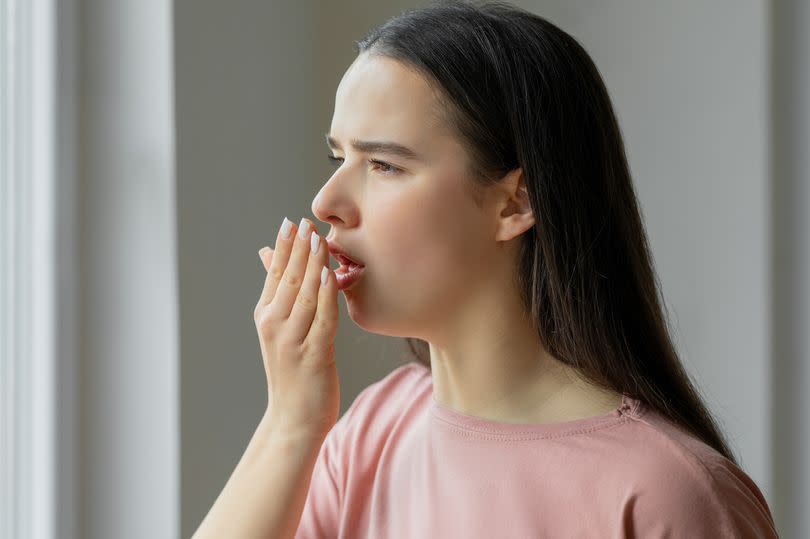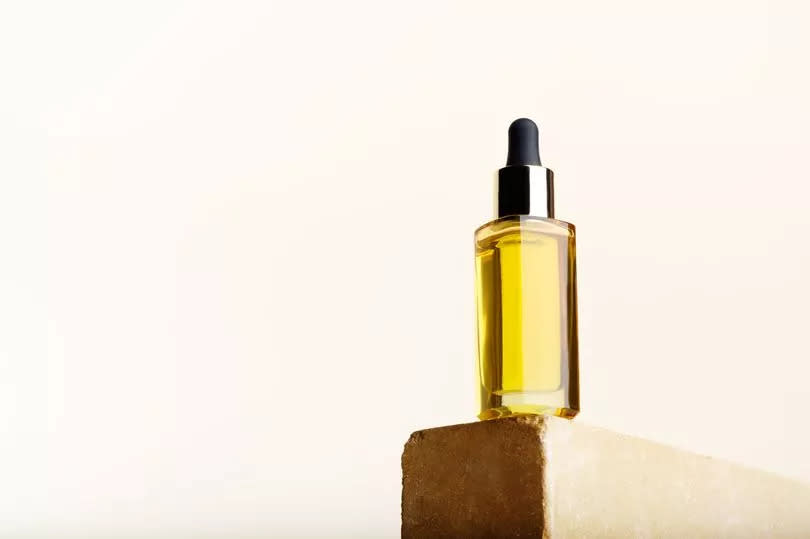Experts name common oil that can get rid of spots, bad breath and dandruff

Experts say that a common oil, which is possibly already in your home, could help in eliminating spots, bad breath and even dandruff. Various studies indicate that tea tree oil boasts a range of health benefits.
Tea tree oil is often found in many beauty and skincare products, such as face washes and makeup wipes. But you can also purchase a small bottle of pure tea tree oil online or from high street stores like Boots and Superdrug.
Tea tree oil is derived from the leaves of an Australian tree known as the tea tree. Aboriginal Australians have used the oil as a natural remedy for centuries due to its medicinal properties.
In addition to mild acne breakouts, dandruff and bad breath, tea tree oil could also serve as a complementary treatment for conditions like eczema, nail fungus and scabies. It is all thanks to its anti-inflammatory and antimicrobial properties, reports Wales Online.
Is tea tree oil beneficial for your skin?
In a study conducted in 2017, participants applied tea tree oil to their faces twice daily for 12 weeks. The results demonstrated that tea tree oil had the ability to improve mild to moderate acne without any significant adverse effects.
In 2015, researchers reviewed 35 studies examining the use of tea tree oil on the skin. The review concluded that there is evidence to support the claim that tea tree oil can improve skin conditions.
In 2018, experts also concluded that the combination of aloe vera, propolis, and tea tree oil has the potential to improve acne. While many of these studies suggest tea tree oil can be beneficial for acne, it is not a total cure.
Tea tree oil is generally safe to use on your skin. But be careful not to get any in your eyes, as it can cause redness and irritation.
Tea tree oil should be diluted before being used directly onto the skin. It is always important to carry out a patch test on a small area of your skin before trying any new products to check for an allergic reaction.
Can tea tree oil stop bad breath?

There is some bacteria in your mouth that can release volatile sulfur compounds (VSCs). These compounds can rapidly transform into gases that contribute to bad breath.
In 2016, a study suggested that tea tree oil may be effective at reducing levels of bacteria that produce VSCs. Separate research also found using a mouth wash that contains tea tree oil, clove, and basil may help improve oral health.
In a 2014 study, the effects of such a mouth wash was investigated. In the study, 40 participants were split into two groups by researchers. During 21 days, one group utilized a mouth rinse available in stores, while the other group used the herbal rinse.
Both participant groups saw significant reductions in plaque and gingivitis. However, those who used the herbal rinse had significantly lower bacteria levels in their mouths compared to those who used commercial rinse.
While this research is encouraging, more studies are needed. To make your own tea tree oil mouth rinse, combine one drop of tea tree oil with a few drops of vegetable oil and add it to a cup of warm water.
Swish the solution around in your mouth for 30 seconds, then spit it out until the entire cup of water is gone. It's important not to swallow tea tree oil as it can be harmful if ingested.
Can tea tree oil help with dandruff?
Due to its antiviral, antifungal, and antibacterial properties, tea tree oil could potentially be used to treat dandruff. It may also be effective against head lice and minor wounds.
Tea tree oil should be mixed with a carrier oil and applied topically for these conditions. It's also commonly found in products like massage oils, shampoos, and shower gels.
Dandruff, a scalp condition that causes small white flakes in the hair, can have various causes, including:
oily, irritated skin
dry skin and hair
a fungus, called malassezia
contact dermatitis
poor hygiene
However, thanks to tea tree oil's moisturising and antifungal properties, it may help alleviate some of these causes. Research has shown that shampoo containing 5% tea tree oil can successfully reduce dandruff caused by a yeast known as Pityrosporum ovale (malassezia).
Other research has indicated that tea tree oil can effectively soothe the itchiness, greasiness, and lesions often associated with dandruff. A 2006 study found that a shampoo containing 5% tea tree oil was beneficial for those participating in the research.
Another study showed that using a tea tree oil shampoo resulted in a significant 78% reduction in microbial growth. It's crucial to note that tea tree oil should not be applied directly to your skin or scalp at full strength; it needs to be diluted first.
While dandruff is typically not a serious issue, it could potentially hide an underlying health condition with similar symptoms. If your dandruff does not improve with over-the-counter treatments, or if your scalp is red, swollen, excessively itchy, and disrupts your daily life or activities, you should consult a doctor.

 Yahoo News
Yahoo News 
